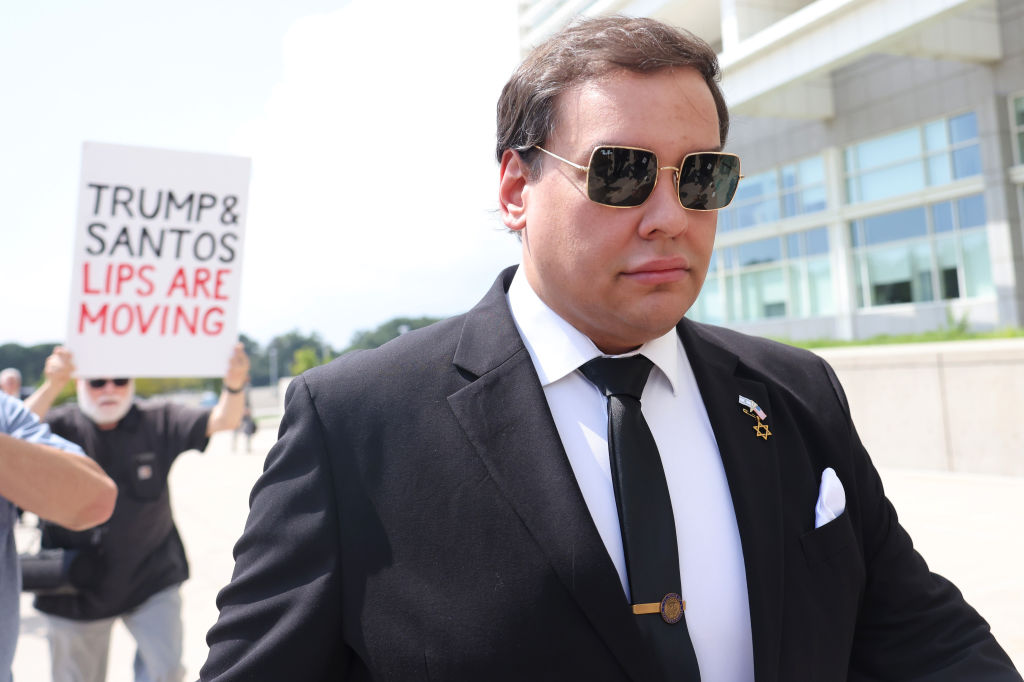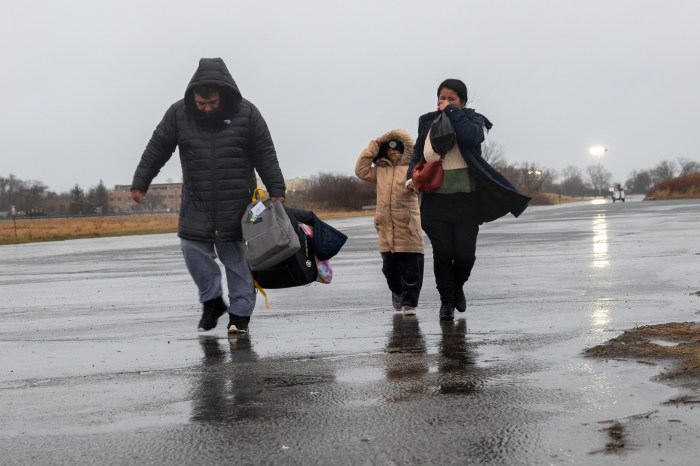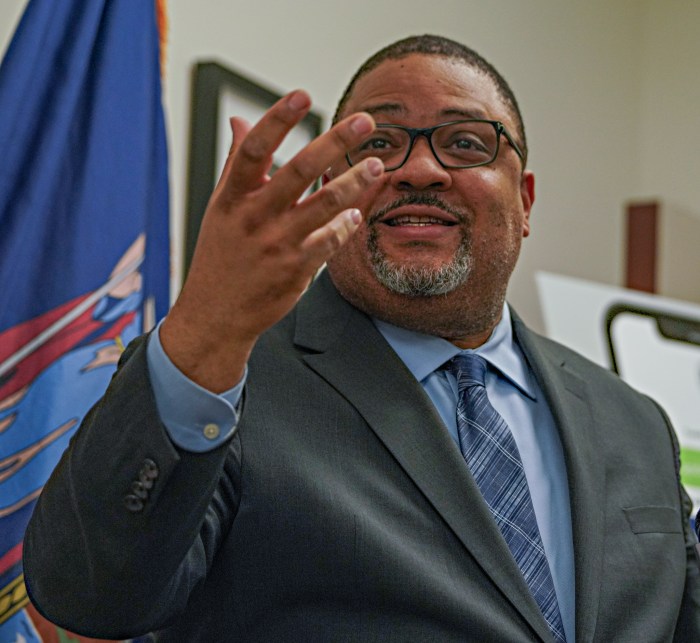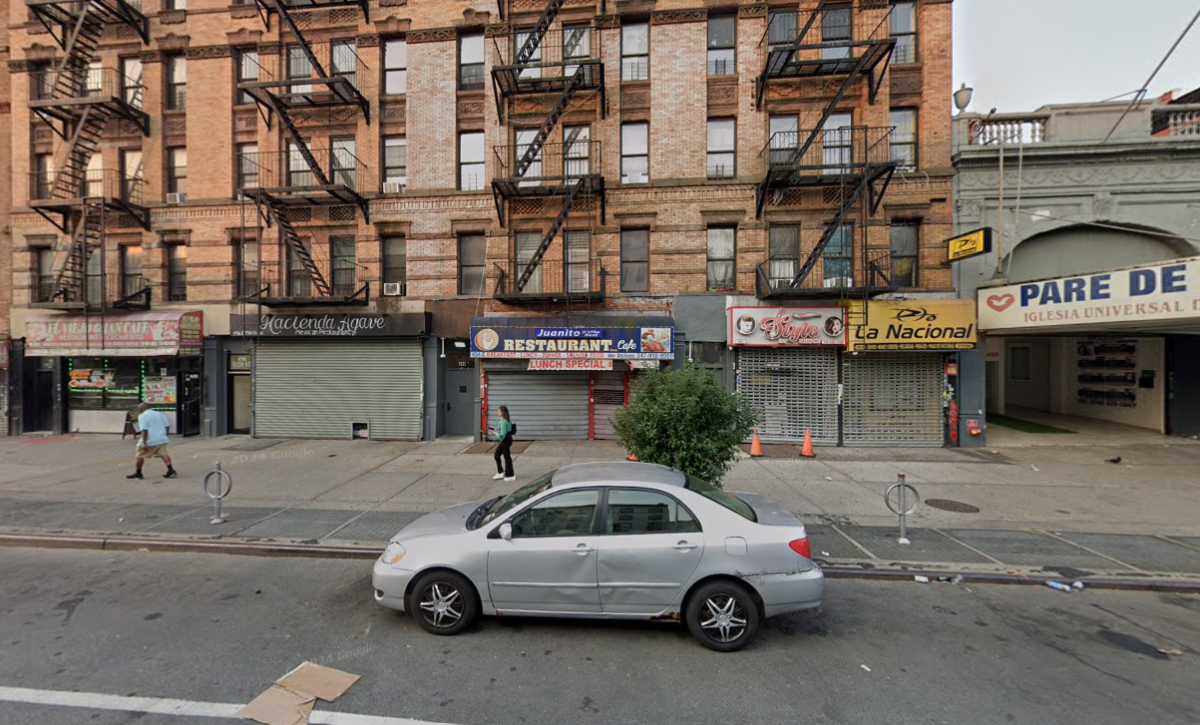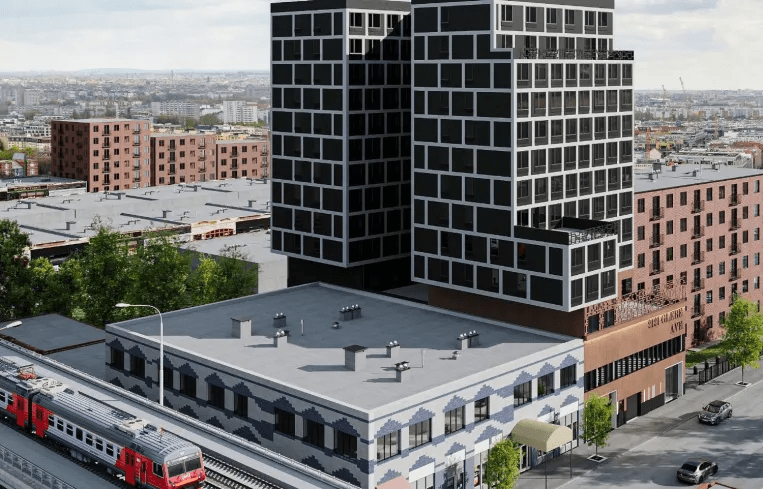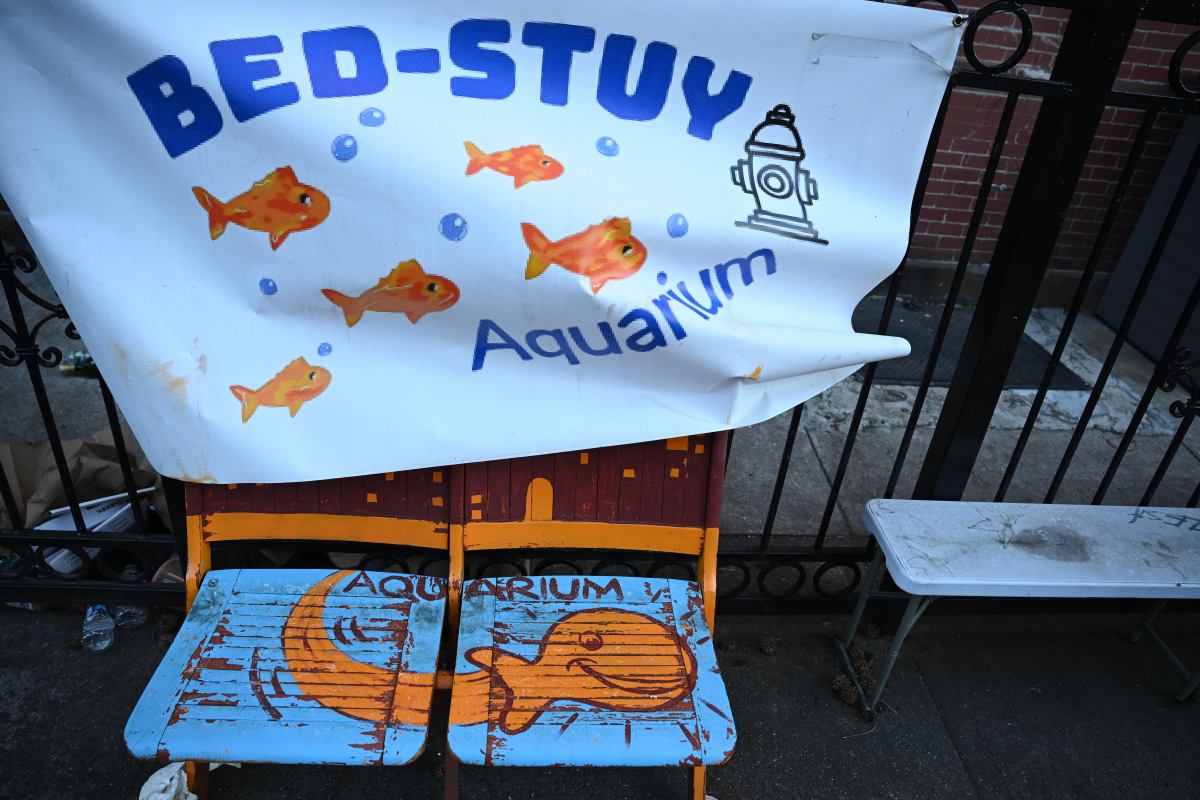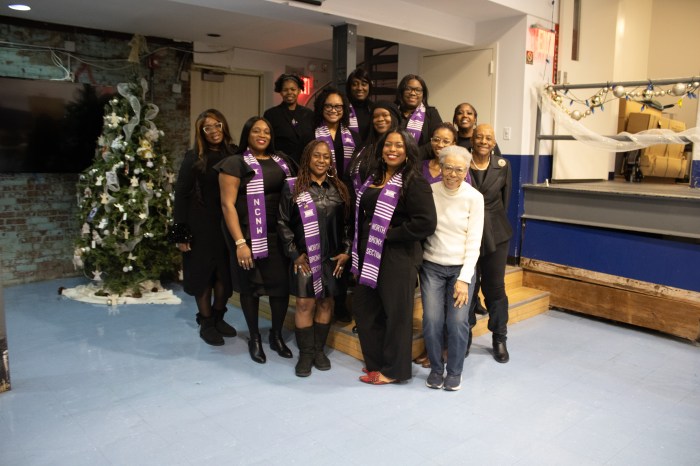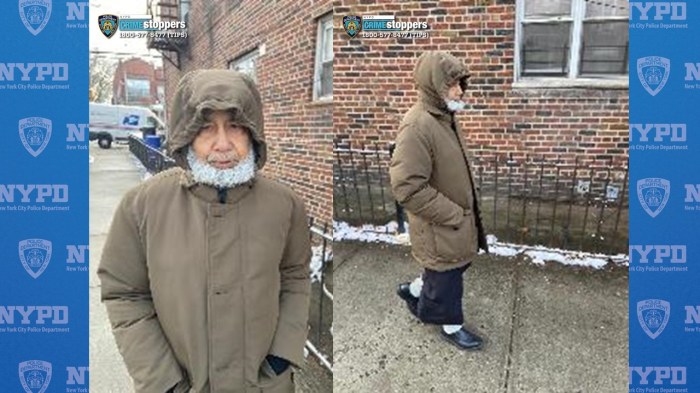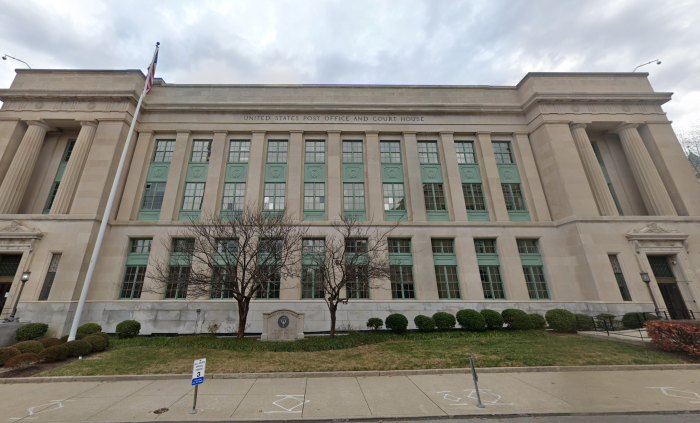The Adams administration has formalized long-awaited rules governing the landmark climate statute Local Law 97, with two weeks before the city’s largest landlords must begin complying with the law.
The publication crystalizes a set of rules proposed by the Department of Buildings (DOB) back in September related to the 2019 law, which requires Big Apple buildings over 25,000 square feet to meet strict regulations on carbon emissions starting next month, and to retrofit their buildings to meet those requirements lest they be hit with financial penalties. Buildings are the city’s largest source of carbon emissions, clocking in at about 70%, with an outsize amount of pollution caused by the largest properties.
“Our administration is working tirelessly to reduce harmful carbon greenhouse gas emissions from every sector, including buildings — our city’s largest source of emissions,” Mayor Eric Adams said in a statement. “It’s all a part of our overall strategy to build a more sustainable, resilient city so New Yorkers are safer from the effects of climate change in the future.”
The law is set to apply to about 50,000 properties across the city, the vast majority of which are projected to meet next year’s emissions limits. By 2030, covered buildings will have to have reduced their carbon emissions by 40% compared to 2005 levels, rising to 80% by 2050 to comport with the state’s climate goals.
The fine for noncompliance is $268 per every ton of carbon emitted in a given year beyond a building’s prescribed limits.
The final rules largely don’t change the most widely discussed aspects of the original package. Landlords will still be able to delay compliance by up to two years if they produce detailed plans that they will make a “good faith effort” to decarbonize their properties and submit to an independent “energy audit.” The law also places no additional limits on “renewable energy credits” (RECs) which allow landlords to avoid penalties by investing in the delivery of renewable energy to the city’s grid.
Both good faith efforts and RECs are written into the original legislation but remain controversial among some environmental advocates, hundreds of whom crowded a DOB meeting in October to plead for tougher rules.
Environmentalists consider Local Law 97 one of the world’s most ambitious local climate laws, but the advocacy community has ruptured somewhat over the Adams administration’s approach to implementing it.
Some groups, like the Urban Green Council, the Natural Resources Defense Council, and the League of Conservation Voters have characterized the rules as imperfect, but necessary to ensure mass decarbonization actually occurs, rather than just a blitz of penalties. 2023 has been the hottest year ever recorded, and the United Nations has urged the countries of the world to rapidly decarbonize their economies to prevent catastrophic warming in the 2030s and beyond.
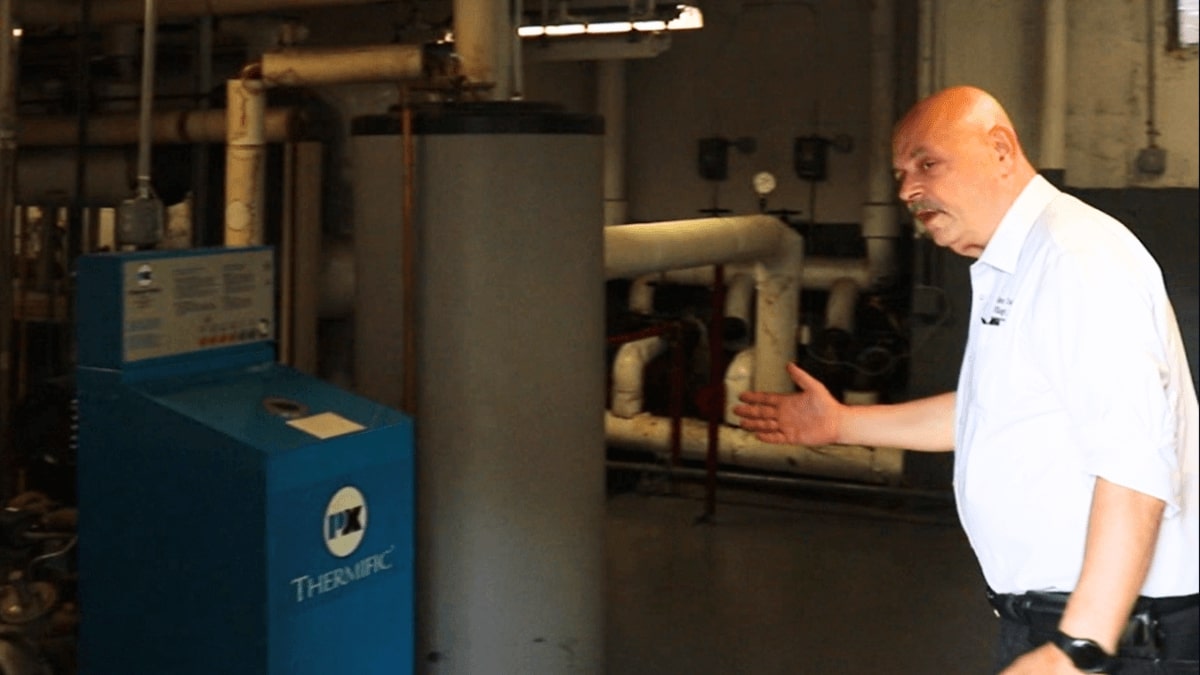
“This is one more important step to make our world-leading climate law practical, implementable and real,” said John Mandyck, CEO of the Urban Green Council. “We applaud DOB for establishing forward-looking and actionable compliance pathways in this rulemaking to achieve the carbon savings that are needed.”
Mandyck was laudatory about the incentives approved for decarbonization and electrification in the mayor’s “Getting 97 Done” plan, which he said will “accelerate carbon savings.” Gov. Kathy Hochul signed into law a new tax credit (replacing the expired J-51) in October that, if the city also enacts it, would allow hundreds of co-op and condo owners to deduct the costs of retrofits from their property taxes, according to DOB.
The Property Assessed Clean Energy (PACE) program would provide upfront financing for retrofits that are repayable through property taxes, while owners would be eligible for credits towards fully electrifying their buildings.
A ‘win’ for real estate?
Contrastingly, though, some environmental groups see the rules package, especially the good faith effort and REC provisions, as gifts to the real estate industry, whose biggest players contributed generously to Adams’ mayoral campaign. In a joint statement, four environmental groups — Food & Water Watch, New York Communities for Change, TREEage, and New York Public Interest Research Group called the good faith effort provision a “two-year or more delay” and RECs a “corporate buy-out loophole.”
“The Real Estate Board of New York (REBNY) won and New Yorkers lost today as Eric Adams put the demands of his largest donors over working New Yorkers’ needs,” the groups wrote in their statement. “Under Mayor Adams’ rules for real estate, owners of New York City’s most polluting buildings will opt to delay or entirely avoid pollution reductions, leaving New Yorkers breathing more pollution, losing good jobs, and paying higher utility bills.”
A spokesperson for REBNY, which has spent lavishly on overt and covert lobbying to soften Local Law 97, said the rules are a “thoughtful proposal” but leaves “many key issues unresolved.” The group commissioned a study in January that found hundreds of non-compliant properties could face $200 million in fines next year, rising to $900 million by 2030.
“We commend the Department of Buildings for moving forward on a thoughtful proposal that seeks to provide support for buildings making their best efforts to comply,” a REBNY spokesperson told amNewYork Metro. “However, with many key issues unresolved, and building owners facing penalties in the months ahead, it is imperative that the Department continue to address the outstanding issues needed to give owners clarity about the law.”
Also disappointed in the rules package were some co-op and condo owners who have sought to weaken or overturn the law, arguing it places unfair financial burdens on middle-class homeowners. The impending start of compliance with the law has led to considerable anxiety at many co-ops and condos, residents of which have packed town halls in Queens to register their unease.
Geoff Mazel, a lawyer for the Presidents Co-op and Condo Council (PCCC), said he doesn’t see much to be happy about in the new rules package.
“It’s not a game changer, it’s not really gonna help most of the most vulnerable co-op owners in the city,” said Mazel. “It’s really baby steps as far as we’re concerned.”
The PCCC’s two co-founders, Warren Schreiber and Bob Friedrich, plus the Queens co-op associations they lead, sued the city last year attempting to overturn Local Law 97, arguing it was unconstitutionally vague and an undeclared tax. They even hired one of the city’s most prominent trial litigators, Randy Mastro, to plead their case, though they wouldn’t say who was paying his retainer.
Nevertheless, a Manhattan Supreme Court judge dismissed the lawsuit in October.
This story was updated at 11 a.m. on Dec. 19, 2023 with comment from REBNY.
Read more: Best Cannabis Seed Banks for Marijuana Seeds




